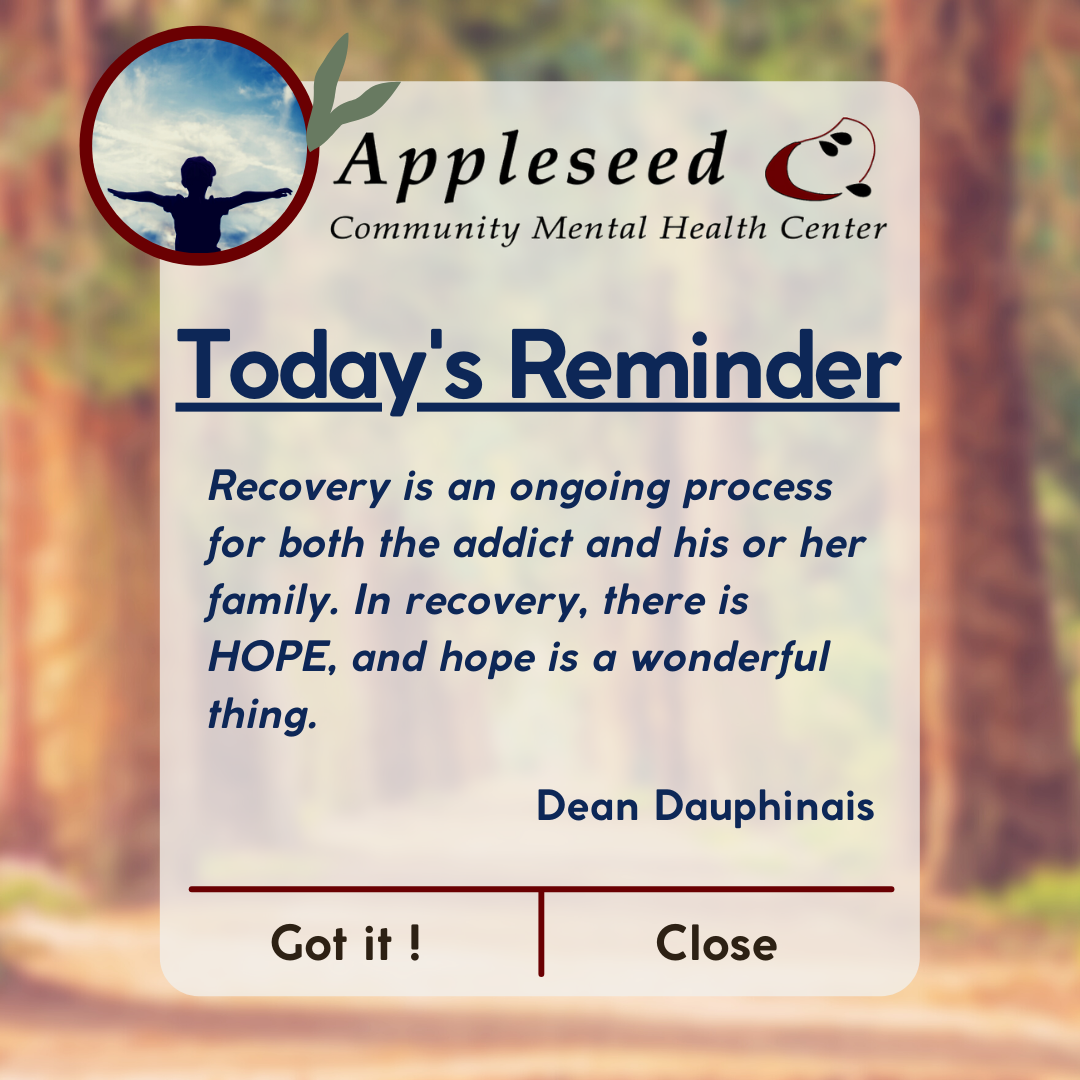For many of us, the holidays are a season of peace, joy, gratitude, and family, but reality often looks quite different...
Family dysfunction, past trauma, anxiety and other mental illness, loneliness, finances, grief--these are only a few of the stressors that can quickly pile up for anyone during this time of year. For those people living with a substance use disorder, these many stressors may compound and overwhelm the addicted brain and the person in recovery, making it an especially difficult time of year to stay sober.
If you struggle with addiction disease, try making a holiday plan to protect your sobriety! The Hazelden Betty Ford Foundation recommends trying the following:
- Look ahead for uncomfortable situations and triggering environments.
- Attend a 12-Step meeting before a get-together.
- Invite a sober and supportive friend to tag along to your party.
- Make plans to meet up with your sponsor or talk on the phone.
Also remember that you are worthy of recovery and support!--self-esteem plays a huge role in the motivation to maintain sobriety. Maybe your expectations for perfection have become a downfall to your self-worth and desire to recover. Here is when a negative self-view may begin to grow and contribute to other issues like depression, anxiety, social wellness, and others. When these kinds of issues are left unattended, they can compound and exhaust mental resources, which may also lead to relapse.
Remember, recovery is a one-day-at-a-time endeavor, no matter the season. If you are in need of a distraction or to channel any anger, frustration, self-loathing, or sadness into an activity, consider exploring the community by volunteering! The warm, happy feeling that hits you when you give the perfect gift or help someone in need is actually the same chemical reward system in the brain that leads to addiction. Rewiring this system towards the spiritual rewards of supporting others rather than the physical reward of substance use can benefit your path to recovery.
If you want to stay sober during the holidays, look for opportunities to be of service:
- Serve a meal at a homeless shelter.
- Reach out to a newcomer at a meeting.
- Spend time with an elderly loved one or neighbor.
There are many different ways to give back, pay-it-forward, and be of service. Each opportunity guides you further away from resentment, self-pity, and fear. In addition to providing service to others, you may also need or want additional services or support during your recovery journey.
- If you're part of a support group, make time to attend a few extra meetings during the holidays.
- If you need help finding a support group, the National Council on Alcoholism and Drug Dependence offers a list of organizations you can contact.
- Stay close to helpful family and friends you’ve met during your recovery journey
- Understand that your family or friends who abuse substances may have to celebrate without you this year.
Hopefully, planning ahead with these tips and approaching the holiday season mentally prepared will help make your recovery journey a bit easier. Remember to engage in sober self-care, steer clear of tempting or risky parties or situations that may trigger a relapse, work to maintain a positive support system of friends, family, and professionals...and call your sponsor!
Even when all these pieces are in place, you may still experience cravings and crises that threaten your recovery. In Everyday Health, clinical social worker and addiction counselor Kate Rhine, reminds us that a craving only lasts about 20 minutes. If you can stay strong for a short period, the urge to drink alcohol or use drugs should pass. To help manage the craving:
- Get up and move around! Move to a new seat, position yourself to enjoy a new visual field, or exercise (bonus points for burpees--the pain is a double-distraction)!
- Meditate or try a new mindfulness practice.
- Practice breathing exercises.
If crisis does strike, reach out to one of your support systems for help.
Remember to include Appleseed:
Appleseed CMHC 24-Hour Crisis: 419.289.6111
Crisis Text Line: 4HOPE to 741741
Rape Crisis/Domestic Violence Safe Haven: 419.289.8085
Happy Holidays!
Jerry Strausbaugh, EdD, LPCCS, Executive Director
Resources:
- https://www.hazeldenbettyford.org/articles/tips-for-enjoying-sober-holidays
- https://centerstone.org/our-resources/health-wellness/10-tips-to-combat-substance-use-during-the-holidays/
- https://www.accada-rap.org/our-services/our-services
- https://www.accada-rap.org/resources/self-help-meetings
- https://www.everydayhealth.com/news/ways-avoid-holiday-addiction-relapses/
- https://ncadd.org/







